What's Going On With The Coup In Niger And Its International Implications
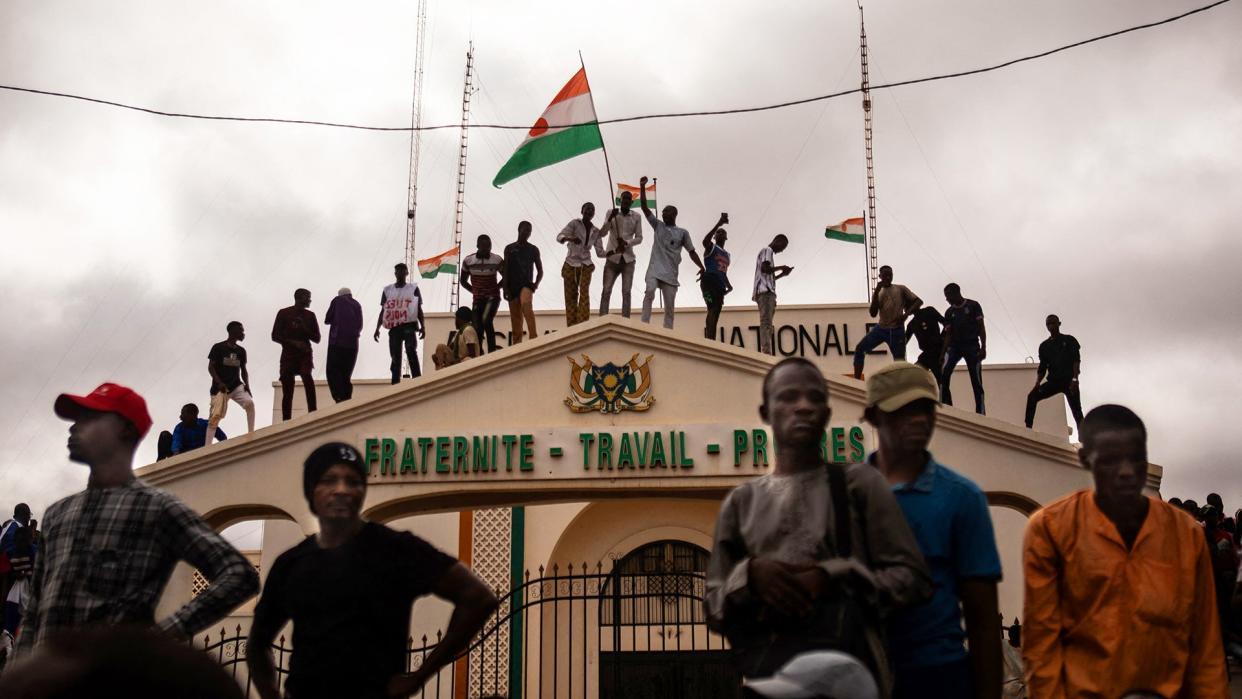
- Oops!Something went wrong.Please try again later.
With about 1,100 U.S. troops and several drone bases in Niger, the military overthrow of that West African nation’s government last week has potentially significant national security implications for America and its allies.
Niger has served as a key staging ground for the fight against terrorist groups, including ones linked to Al Qaeda and ISIS, across a broader region known as the Sahel over the past decade. The Sahel refers to the area that separates the Sahara Desert from true Sub-Saharan Africa.
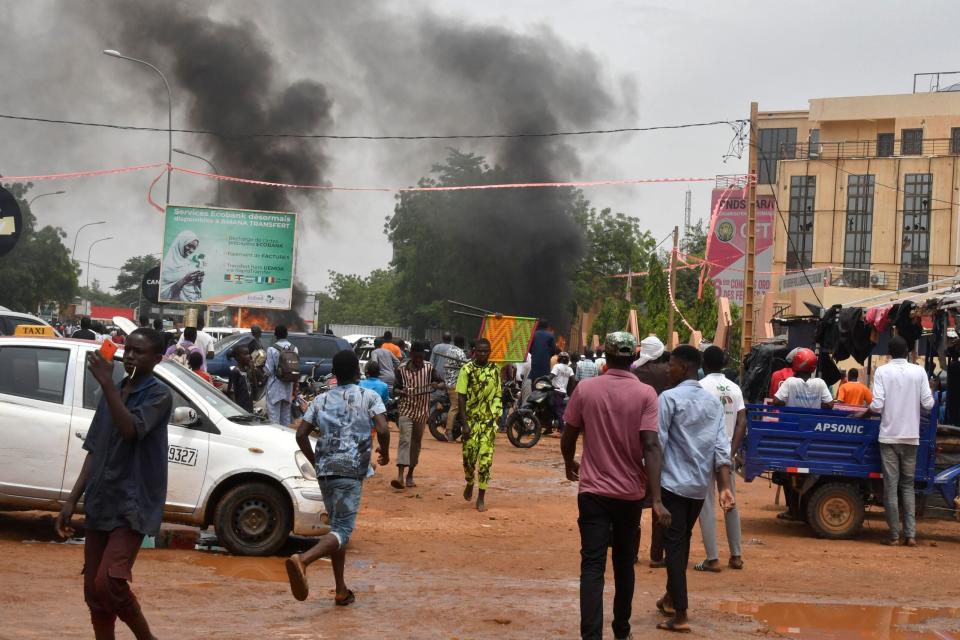
It has also been a bulwark of sorts in an area where other democratically elected governments have been toppled and some, like Mali, have later been aided by Russia’s Wagner mercenary group. The fact that other recently overthrown governments have appealed to Russia raises the specter of the Washington and Moscow vying for influence in a volatile region at a time of increased global competition. China too is a major player in the region, with huge investments in Niger and other countries in the Sahel.
So the change in Niger’s leadership, if it holds, presents several challenges in the Sahel.
The trouble began July 26 when Gen. Abdourahmane Tchiani - commander of Niger's presidential guard - led a mutiny against the sitting government. Now calling themselves the National Council for the Safeguarding of the Country, they placed President Mohamed Bazoum under house arrest in the capital of Niamey, seizing power. Bazoum took office in 2021 despite an earlier attempted coup.
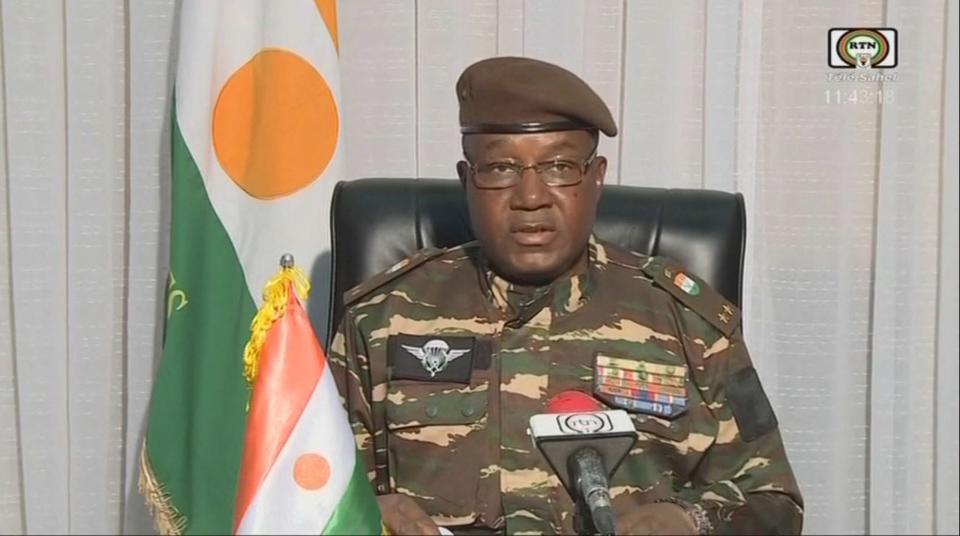
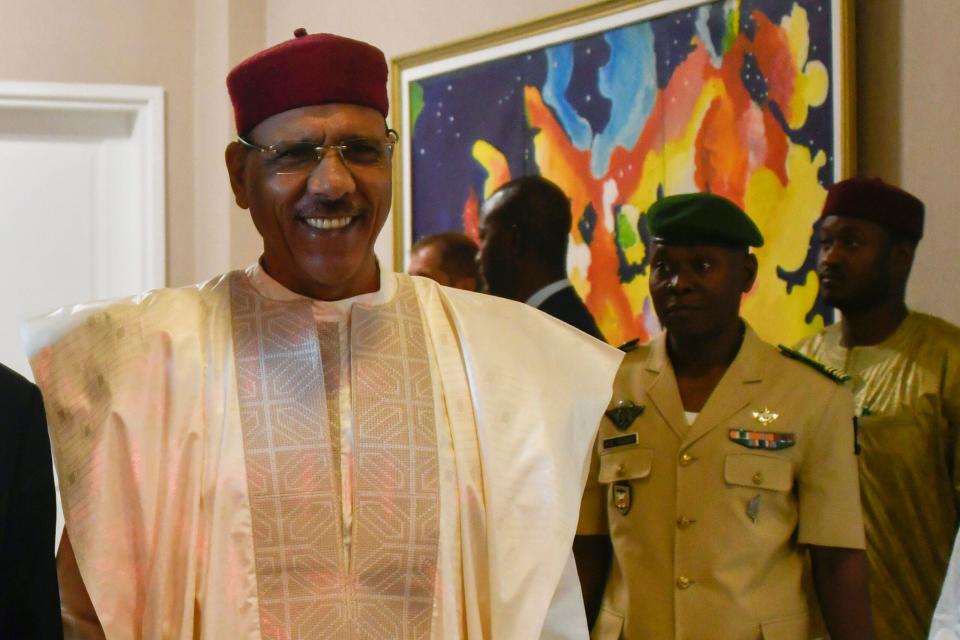
In the wake of that, the U.S. State Department on Wednesday “ordered the departure of non-emergency U.S. government employees and eligible family members from Embassy Niamey.“ In addition, the U.S. Embassy in Niamey “has temporarily reduced its personnel, suspended routine services, and is only able to provide emergency assistance to U.S. citizens in Niger.”
U.S. citizens have previously been advised to reconsider travel to Niger due to crime, terrorism, and kidnapping.
The State Department has not yet requested Defense Department personnel or equipment as part of its ordered departure, Air Force Brig. Gen Pat Ryder, the Pentagon’s top spokesman, told reporters on Thursday.
In an opinion piece he wrote for The Washington Post on Thursday, Bazoum called himself a "hostage" and called upon the U.S. and allies to help restore his government.
"In our hour of need, I call on the U.S. government and the entire international community to help us restore our constitutional order," he wrote. "Fighting for our shared values, including democratic pluralism and respect for the rule of law, is the only way to make sustainable progress against poverty and terrorism. The Nigerien people will never forget your support at this pivotal moment in our history."
Short-Term Implications
The U.S., along with France which has about 1,500 troops in Niger and Germany with about 100, use facilities in that country to combat jihadi groups like the Islamic State and al-Qaeda, as well as train regional defense forces.
The Western troop presence in Niger "ballooned over the past decade as the country became a key regional security partner for the United States, France, and the European Union," Congressional Research Service wrote in a recent report. "France’s withdrawal of over 2,000 troops from Mali and Burkina Faso in 2022- 2023, about half of whom were sent to Niger, magnified the country’s importance for Western-backed security efforts."
There are no immediate changes to “U.S. force posture in Niger,” Ryder told reporters on Thursday. However, there are some impacts on operations.
U.S. troops in Niger are mostly staying on base and limiting engagements with counterparts, though they can go off base “conditions permitting,” Ryder said.
While there have been no threats against U.S. troops by Tchiani’s forces, the Pentagon is “taking prudent force protection measures” and is “monitoring the situation closely,” said Ryder.
He added that U.S. forces in Niger “continue to cooperate daily with Nigerien forces to keep base operations and services functioning.” Those Nigerien troops “are not necessarily associated with this seizure of the president,” said Ryder.
One immediate impact to the U.S. of the overthrow was a decision by the National Council to close the airspace over the country, including all flights out of Nigerien Air Base 201 in Agadez, Politico first reported. That facility is where the U.S. operates a squadron of MQ-9 Reaper drones and MQ-1C Gray Eagle drones after investing $100 million to rebuild and $30 million annually to operate it, according to Politico.
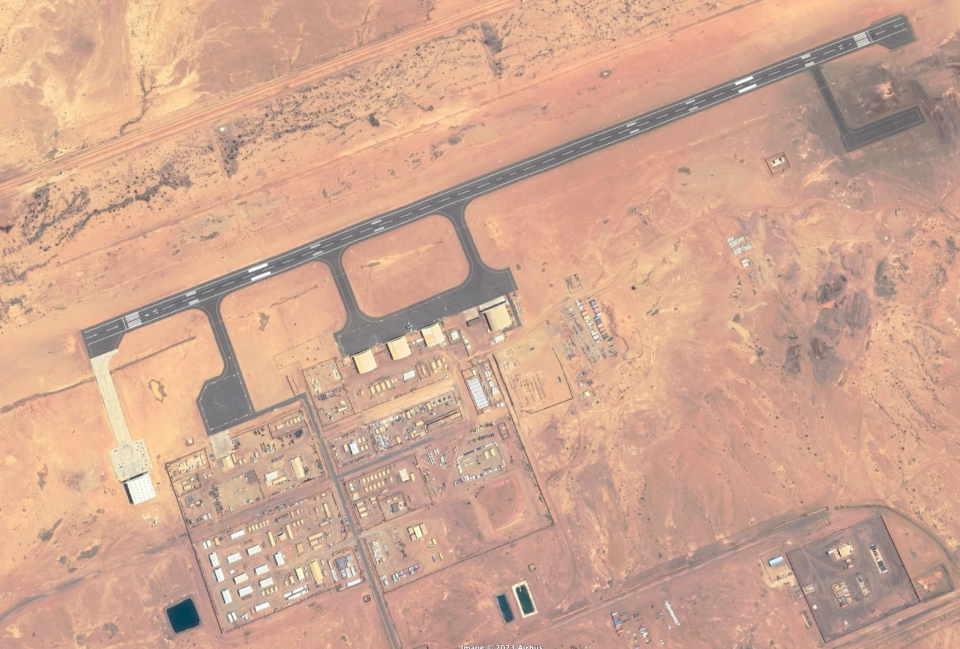
It is unclear at the moment if those air space restrictions still hold and what impact it may be having on operations against the extremist groups who are increasing their activity in the Sahel.
Citing operations security concerns, U.S. Africa Command on Friday declined to provide us with comment on "current operations and capabilities."
Adding to the immediate concerns, the Nigerien takeover has drawn in African nations to both sides.
The Economic Community of West African States (ECOWAS), a 15-member bloc of nations that includes Niger, on July 30 threatened the use of force to restore Bazoum within a week. It also imposed travel and economic sanctions on Niger.
For more than four decades, ECOWAS has intervened in regional crises, most recently in Gambia in 2017, where its soldiers helped stop longtime President Yahya Jammeh from trying to overturn the results of an election he had lost.
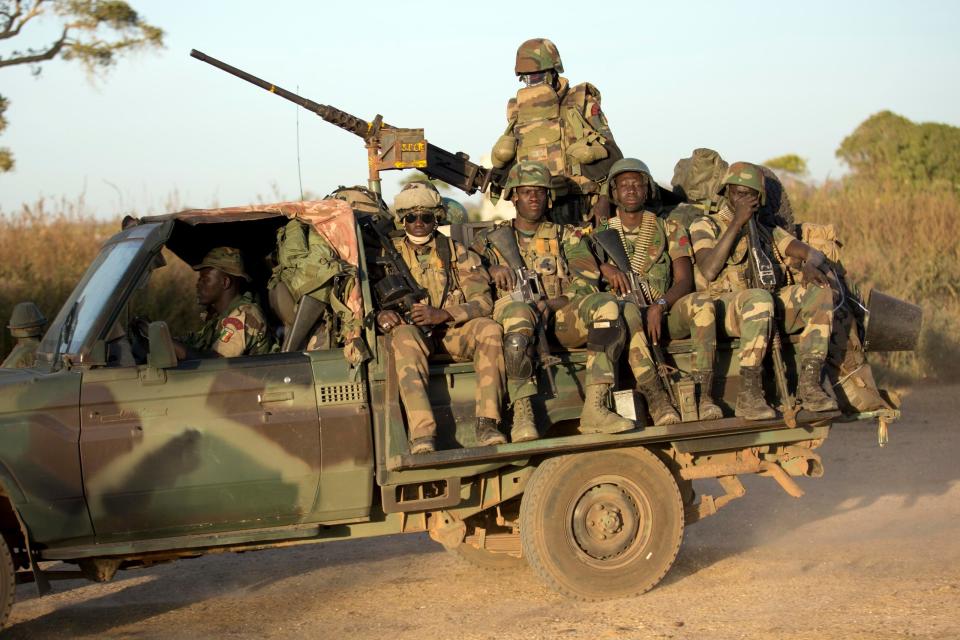
Bolstering the ECOWAS effort, President Bola Tinubu of Nigeria wrote to the Nigerian Senate on Friday asking for its support for Nigeria's military intervention in Niger, according to the LSI Africa publication.
Meanwhile, Burkina Faso and another military junta-led country friendly with Russia, Mali, have declared that intervention against Nigerien putsch leaders would be considered a declaration of war against them, too, The Associated Press reported Wednesday. Both countries have undergone recent coups.
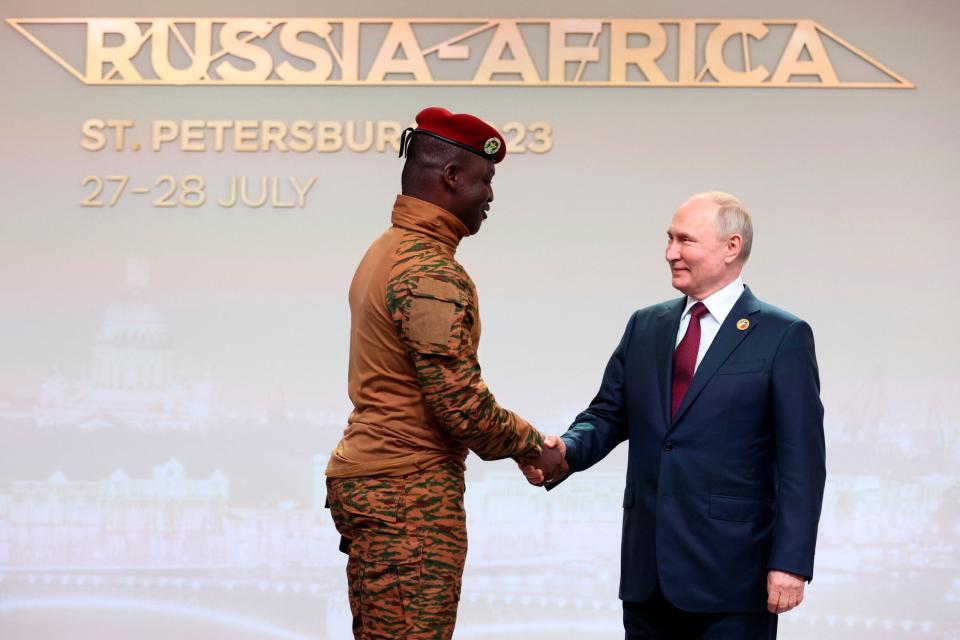
Long-term ramifications
The U.S. faces a difficult balancing act in Niger, one reason the Biden administration has yet to call the National Council’s actions a coup and has yet to impose or even threaten sanctions. Such a designation could cut off military training and aid to the country, further limiting Washington’s influence in a region roiled by turmoil.
By issuing sanctions against Niger, the U.S. would be acknowledging the overthrow is final. While ECOWAS has already issued sanctions, however, it maintains that Bazoum is the legitimate head of government in Niger.
The overthrow of Bazoum is the latest in a series of military takeovers across Africa.
As The New York Times noted, since 2020, three of Niger’s neighbors — Mali, Burkina Faso, and Guinea — have experienced five coups.
"Like recent coups in neighbouring Burkina Faso and Mali, last week's military takeover in Niger came amid a growing wave of anti-French sentiment with some locals accusing the former colonial ruler of interfering in their affairs," Reuters reported.
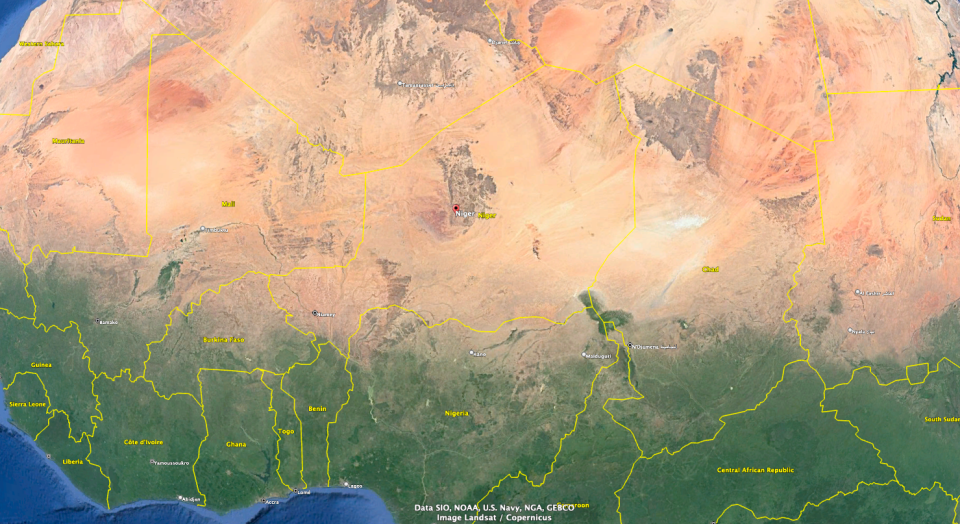
Losing Niger as a partner could have a tremendous impact on the ability of the United States and France, as well as their other allies and partners, to counter violent extremists across much of northwest Africa.
The Sahel “has surpassed the Middle East and South Asia to become the global epicenter of jihadist violence, accounting for 43 percent of 6,701 deaths in 2022, up from 1 percent in 2007,” The New York Times reported, citing the Global Terrorism Index, an annual study by the Institute for Economics and Peace.
Niger was also where four U.S. troops and several Nigerien soldiers were killed in an ambush by Islamic State-linked militants on Oct. 4, 2017.
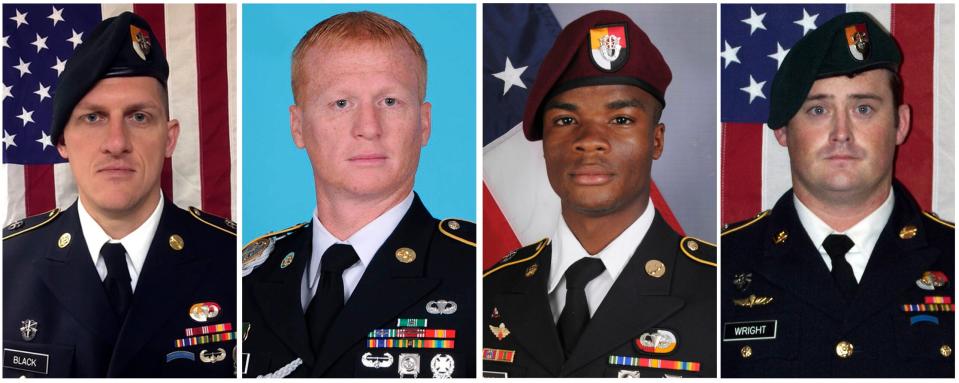
Increasing concerns about the fight against jihadis, the junta leaders on Thursday cancelled several military agreements with France, Reuters reported.
France, however, rejects that.
"France recalls that the legal framework for its cooperation with Niger in the area of defense is based on agreements that have been concluded with the legitimate Nigerien authorities," a French official told The War Zone on Friday. "These are the only ones that France, like the entire international community, recognizes."
Beyond the issue of jihadi groups is the concern that Russia, through the Wagner group, is extending its influence in Africa.
Wagner forces operate in Mali, Sudan, the Central African Republic and Libya.
As Russia's relations with much of the rest of the world have deteriorated after its full-on invasion of Ukraine, it has turned increasingly to Africa. Moscow has been stoking anti-colonialism sentiments that remain strong across the continent, something Russian President Vladimir Putin particularly emphasized during a summit with African leaders last month in St. Petersburg. He also used debt write-offs and grain as carrots to entice those nations.
“Russia’s attention to Africa is steadily growing,” Putin said at the end of the two-day event.
The Wagner group was created in large measure to increase Russian military influence in places like Africa and Syria. At the end of 2021, it was deployed to Mali with that in mind.
"While Wagner will ostensibly train local forces and provide security services to senior Malian officials, it will also take advantage of the situation to spread Russian influence on the continent and secure financial gains," the Center for Strategic and International Studies reported last year. "Similar to its deployment in the Central African Republic (CAR), Wagner’s activity in Mali allows Malian political leaders to coup-proof the regime in exchange for financial and mineral concessions."
In the wake of Wagner boss Yevgeny Prigozhin's aborted mutiny, tens of thousands of his fighters were no longer bogged down in Ukraine. Many were subsumed by the Russian military. About 6,000 have gone to Belarus, Ukrainian Maj. Gen. Kyrylo Budanov, head of the Defense Intelligence Directorate, told The War Zone on Thursday. But many are apparently supposed to head to Africa, something Budanov told us in July.
Wagner's hub in Belarus "is being created for Wagner operations overseas, mostly in Africa," he said.
On Wednesday, a National Council leader and other officers flew to neighboring Mali to meet with its rulers, The New York Times reported. That, in turn, has sparked worries that closer ties between the juntas in Niger and Mali could lead to the former creating a closer relationship with Wagner, which has about 1,500 troops in the latter country.
In his Washington Post opinion piece, Bazoum said the entire region was at risk from Wagner.
"With an open invitation from the coup plotters and their regional allies, the entire central Sahel region could fall to Russian influence via the Wagner Group, whose brutal terrorism has been on full display in Ukraine," he wrote.
Earlier in the day on Thursday, Ryder, the Pentagon spokesman, said that there was no indication so far that Wagner was associated with the putsch. But with a Wagner presence in Africa, “it's something that we're continuing to keep a close eye on,” he said.
China too is paying close attention to the events in Niger. It's the latest nation to see an overthrow where it has extensive investments. China's influence across Africa has been rapidly expanding in recent years, with raw materials a focus and financial assistance to regimes that have them acting as a major incentive.
Burkina Faso, Guinea, Mali, Chad and Sudan "are all countries where China has extensive economic interests especially in the mining and petroleum industries and is looking to extend its multibillion-dollar trade and investment scheme, the Belt and Road Initiative," the South China Morning Post (SCMP) reported.
China’s state-owned China National Petroleum Corporation and China National Nuclear Corporation invested $4.6 billion and $480 million in the country’s petroleum and uranium industries respectively, according to China’s Ministry of Commerce, according to the SCMP.
There are many factors in play here in what remains a very fluid situation. The stakes for so many actors, both local and international, are very real. As a result, morphing influences in the Sahel will be a much larger concern for the U.S. and its allies after the recent events in Niger.
Contact the author: howard@thewarzone.com

